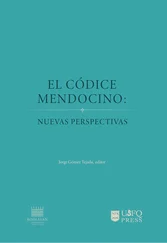He rarely drinks coffee. He’s doing so now, he’s explained, because of insomnia the night before. Until this morning she hasn’t known that he resists setting the cup in the saucer just as, ten years ago, her first husband did. She relied on it: really, she waited for him to set his cup down on counters or tables rather than in saucers, and this sense of waiting for this or for some other gesture or inflection unique to him was her sense of what it was to love. It was a thing she loved, his resisting the convention by which the presence of the saucer compels the placement of the cup, a thing he did that no one else did, and she hadn’t expected to encounter that habit again, or, encountering it ten years later, to feel love. To have a fraction of an instant’s love exacted from her for someone she does not love: What does it prove about love, about this love (she means not love for the man sitting next to her, but love for her ex-husband), about what you can know about what you feel? You think you are aware. You perceive that you are drawn to the angle of your father’s cheekbone in an otherwise unknown face, you understand that the presumptuous way your wrist is taken hold of and a thumb is run across your palm (she is thinking of meeting her second husband) works on you because in your family intimacy had had so much distance to cross it had needed the power of presumption, there had had to be something intractable about it, really, or it couldn’t have existed at all. You believe, in short, that you are informed about what you feel. An intelligent consumer, a diligent recycler, a woman who, the second time, married wisely and well. You allow for contradictions and gaps because it is wise to. You have never before hit a wall like this — never run into some way in which you are truly, blindingly wrong about yourself. Because a man sets his coffee cup down alongside his saucer, you can conceivably love him. It would be no less love than what you feel for your husband, yet this can’t, in any reasonable, enlightened view of things, be true. She wants to gape in her companion’s face, or to shout, to offend or alienate him so that he, dismayed, will assume responsibility for maintaining distance.
He gets it. Something’s gone awry, and his voice is unsure, fractured by hesitation, when he says, “Okay, what?”
“Nothing.”
He says with a plain kind of gentleness, no wiles, no manipulation, only a rightful affection for her in his voice, “Come on.”
“You could be my first husband.”
“Oh? Would I want to be?”
“I just realized.” Aware he needs more to go on, she withholds; she lets him wait, she wants him to; it is the first consciously unequal moment they’ve experienced, her inflicting this brief interval of suspense upon him. This is the answer to the rightful affection in his voice: for her part, no affection, none, and the absence of reciprocal affection lets in sex. “I don’t know why I didn’t see it before.”
He says, with the satisfaction of someone too intelligent to be flattered (who is nonetheless pleased), “We look alike?”
She’s not going to tell him what it is. She wants no self-consciousness to intrude in his way of setting his coffee cup down or she’ll never get to see it again. She says, “There’s something.”
“Is that good?’
“I’m surprised.”
“Good surprised?”
“I can’t tell.” She considers. “Good, I think. I haven’t thought about him for a long time. Can you go years without thinking of someone you once loved? It makes a life seem very long.”
“What?”
“That you could love someone for years. Then forget them for years .”
“Then remember them? I’ve felt that. There was this girl — my first wife.” He’d like her not to have caught girl , a word potentially problematic: his status in the office has much to do with his being deemed progressive. “We were married three weeks.”
“That long?”
“No one takes this story seriously when I say three. It was a mistake, but at the same time, we were serious, we were in deep. And I guess I haven’t done that that many times.”
In his voice, the sudden amplitude of truth telling, the sense of language widening out, of constraints loosening. This, the shift to self-delighting spontaneity, is what she’s always hoping for in her dealings with others: she sees that now, even as she recognizes her inward wish to end this conversation before the rapport between them twists toward franker, sexier seriousness. When she prods her empty torte plate across the counter, it’s so that the scrape of china across Formica will stand in for her voice, so that he will be interrupted by something other than her protest, and also so that, theatrically, she can read her watch. “God! I’ve got to run.”
He says ruefully, “You stopped it.”
She’s shrugging into her coat. There’s a cottonwood leaf on the coat’s shoulder, and he picks it off. He rubs his palms together, the stem between them, and the leaf twirls. Says, “Okay. Something happened. I understand something happened, but not what. You’re not going to tell me what, are you?”
“No.”
“At least you don’t lie. At least you don’t say, ‘Nothing happened.’” He shakes his head. “I’m lost.”
She smiles. “You know when to leave things alone.”
“But I don’t know. It’s you who’s decided to leave. There’s only one of us who understands what just happened. But okay. I guess you know what you need to do.”
She smiles again, not as pleased with him as she was a moment before, not as pleased as she was with herself. “I’m still learning.”
But it’s not true — or, rather, it’s so newly true that she can’t accept it. Sitting down with him, fifteen minutes ago, she would have said with perfect conviction that she knew all she needed to know about herself. It’s odd to think that her sense of herself has ruptured, that she must now conceive of herself as still learning , as unfinished and anxious, necessarily vulnerable to surprises and intrusions, because it’s only by the narrowest of margins that her decision to get out the café door triumphed over her desire to lean nearer, to prolong her smile until its very duration transformed it into proof of willingness.
Outside, the high-altitude October radiance causes a darker blue to melt across the photosensitive lenses of her sunglasses. Her reflection skates across a plate glass window. One mannequin appears to have thrust a hand through the glass. That is, on her side of the glass, her wrist meets the pane; on the exterior, positioned to match her wrist, her upturned hand is fastened in place. Someone, probably a child, has dropped five bright blue gumballs in that hand. The other mannequins sport garter belts and laddered silk stockings, and seem to have just roused themselves from a tumultuous, sexy group sleep, like a gang of puppies. A horse wanders down the street: it takes her a moment to understand that there is a rider, and the rider is a police officer. The parking garage smells of oil-stained cement and deep shade; the way shade smells in the desert, even in an industrial setting, is one of the pleasures of her western state.
The cruising cars are tourists, but it’s late enough in the year that traffic across town is light. She feels as if she’s been waiting all day to drive. Sometimes driving is like this, a kind of consolation that’s taken your measure and suits you exquisitely. She realizes also that she likes being alone. She has no idea how long she has wanted to be alone, because it’s not a desire that can easily be teased apart from the mix of calculation and confusion, misgiving and worry and relief, that makes up her workday, yet now it’s an available luxury: when she gets home neither her husband nor the boys will be there. Her husband has taken the twins to soccer practice. She wants them gone, and they will be — rarely does domestic life offer such a happy intersection of desire and circumstance. There is an early-evening vacancy to the suburbs, a kind of careful otherworldliness, and she’s aware she is about to laugh as she bends to retrieve one of the twins’ baseball gloves from the lawn. She holds the glove to her face and breathes in grass, leather, sun, little boy. She thinks if any neighbor came up and she turned her brilliant eyes on him he’d be frightened, he’d have to think it was something bad. Facing this imaginary neighbor, the glove still tipped against her face, she does laugh. She laughs into the leather palm hollowed so that the flying ball can lodge there, perfectly clasped. That rush, the exhilarated momentum of attraction, the assurance of sexy fit between two bodies, could have become the decisive factor. It had wanted to dominate, it had wanted to divert and disrupt, and it had felt wonderful. She could have done anything. It’s a realization she has to hate if she is not to hate her life. In her husband she loves calm, wit, sanity, even a certain resistance to her. If she said of the marriage, “We understand each other,” she would mean something far more like “We have a deal” than “We know everything about each other,” but “We have a deal” is cold and can be dismissed, and her marriage is neither cold nor dismissible. A child in a yellow slicker passes by on the sidewalk, kicking leaves, and for a moment everything seems set right, all dangers safely behind her.
Читать дальше












